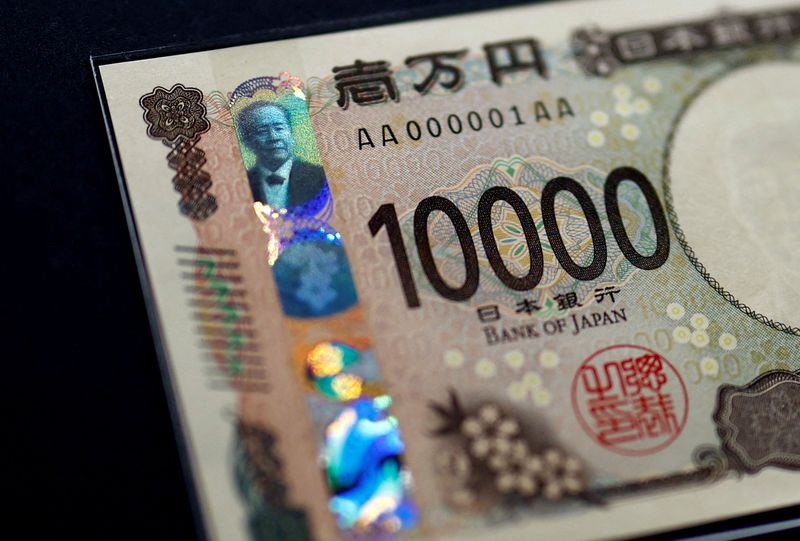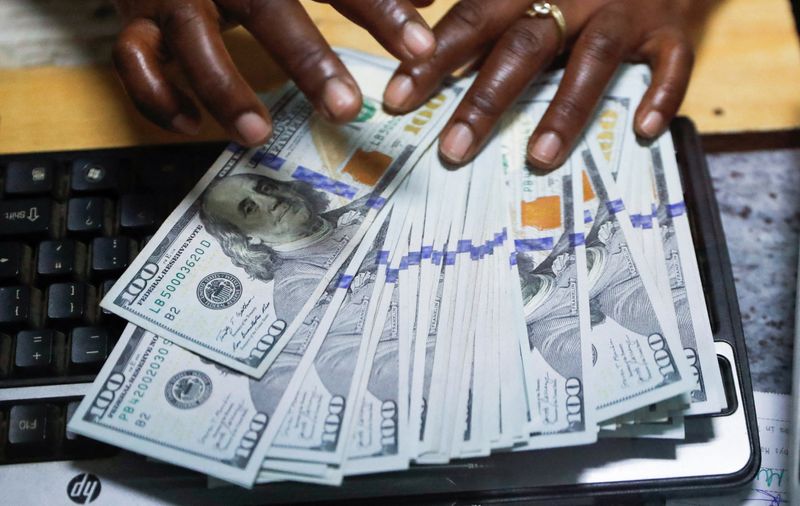By Ankur Banerjee
SINGAPORE (Reuters) -The yen slid on Friday as investors awaited results from a run-off in Japan's contest to replace its prime minister, while China's spree of stimulus measures kept risk-sensitive currencies aloft.
The yen fell more than 1% to 146.495, its lowest since Sept. 3, with markets bracing for the victory of hardline nationalist Sanae Takaichi, a vocal opponent of further interest rate hikes, in one the country's most unpredictable leadership votes in decades.
Out of a record nine-strong field, economic security minister Takaichi and former defence minister Shigeru Ishiba, amassed the most votes and qualified for the second round expected to conclude at 0630 GMT.
"If Takaichi wins and dollar/yen goes back to 160, markets might see an earlier BOJ hike or FX interventions again, although with top currency diplomat Kanda gone those might be a lot less punchy than previously," UBS analysts said in a note.
Meanwhile, China's spree of stimulus measures this week continued to boost risk appetite, lifting stocks, commodities and risk-sensitive currencies.
Steps so far have included lowering the amount of cash banks must hold as reserves by 50 basis points to free up more funds for lending and a slew of cuts in key interest rates.
Sterling was a shade lower at $1.3381 but remained close to the 2-1/2 year high it touched this week, while the Australian and New Zealand dollars also held near multi-year highs due to China stimulus plans.
The Aussie eased to $0.68705, but was near the 18-month high it touched on Wednesday. The kiwi last fetched $0.6298, not far from its nine-month high. [AUD/]
On Thursday, China's leaders pledged to support the struggling economy through "forceful" interest rate cuts and adjustments to fiscal and monetary policies, stoking expectations for more stimulus.
The remarks, which included guidance to officials to support household consumption and stabilise the troubled real estate market, came in an official summary of a monthly meeting of top Communist Party officials, the Politburo.
"It certainly appears that property and the economy have become an urgent priority for the Politburo judging by the timing of the announcements and the specific mention of fiscal measures," said Jon Withaar, who manages an Asia special situations hedge fund at Pictet Asset Management.
"We are positive on the change in language but want to see specific details to be able to make a informed decision about the efficacy of such measures."
DRIFTING DOLLAR
Data on Thursday suggested the U.S. labour market remained fairly healthy, while other reports showed corporate profits increased at a more robust pace than initially thought in the second quarter, highlighting an upbeat economic outlook.
The dollar, however, remained on the back foot as traders priced in 73 basis points (bps) of easing for the rest of the year, with a 51% chance for another outsized half-percentage-point cut, according to CME Group's (NASDAQ:CME) FedWatch Tool.
The Federal Reserve has recently signalled a shift in focus away from inflation and towards keeping the labour market healthy, delivering a larger-than-usual 50 bps interest rate cut last week.
The dollar index, which measures the greenback against a basket of currencies including the yen and the euro, was last at 100.86, not far from the 14-month low of 100.21 it touched on Wednesday.

The euro was steady at $1.11615, just below the 14-month high of $1.1214 it touched on Wednesday.
Investors will keep an eye on the personal consumption expenditures price index due to be released later on Friday, but analysts do not expect the data to materially shift market pricing for U.S. rates unless there is a huge miss.
